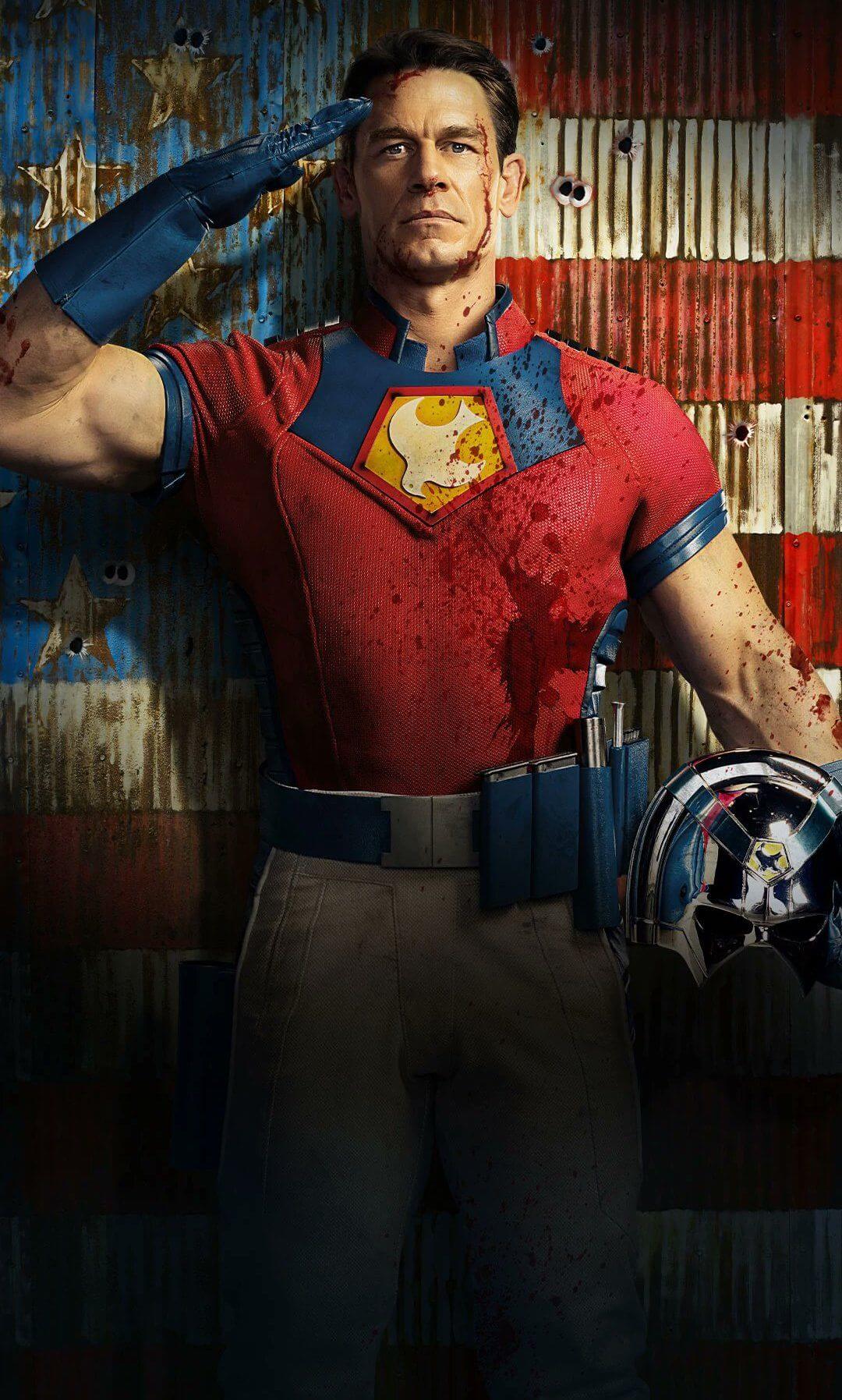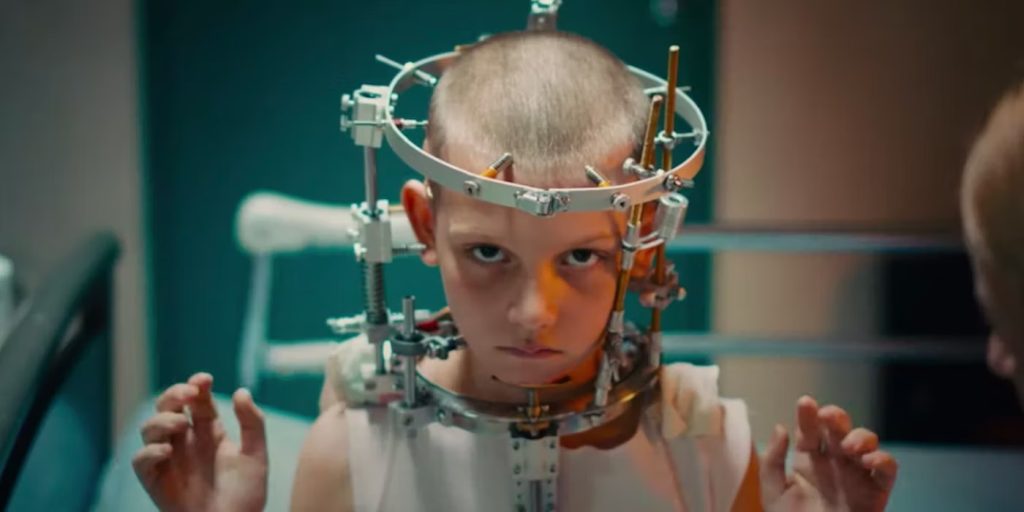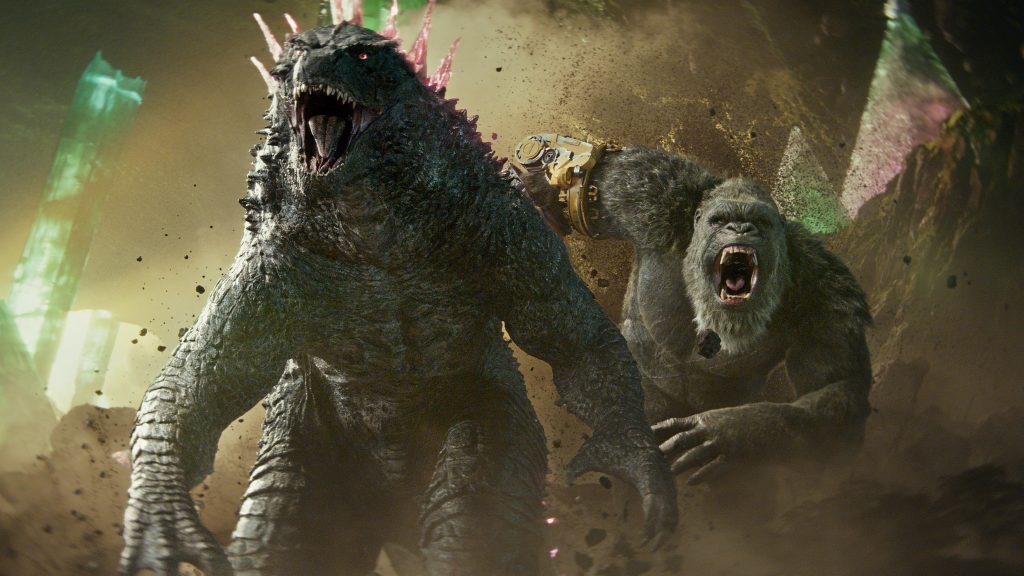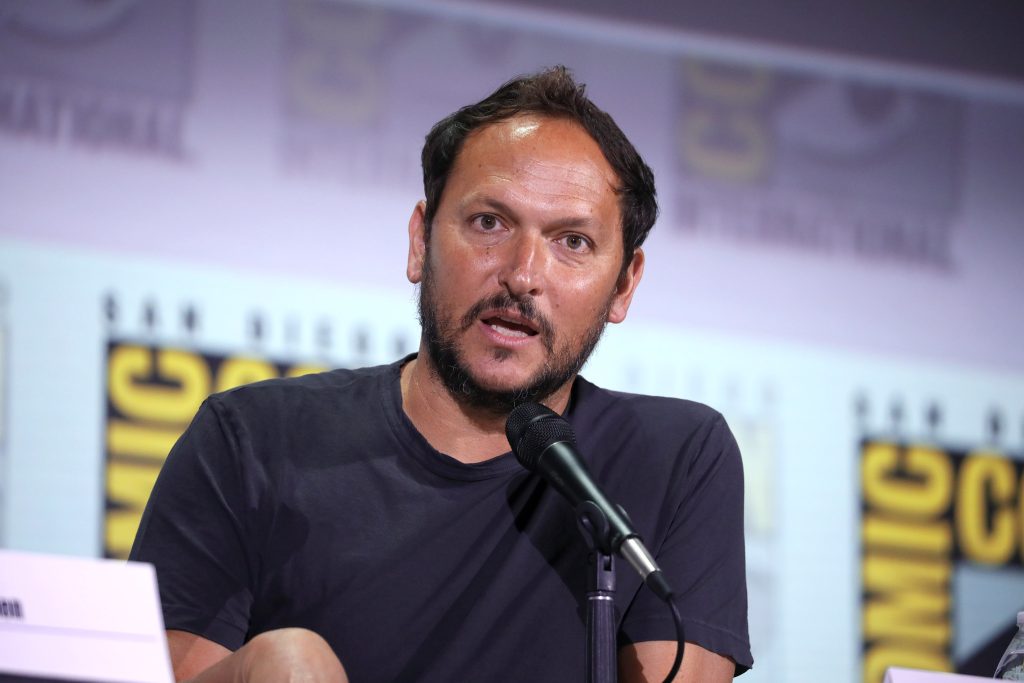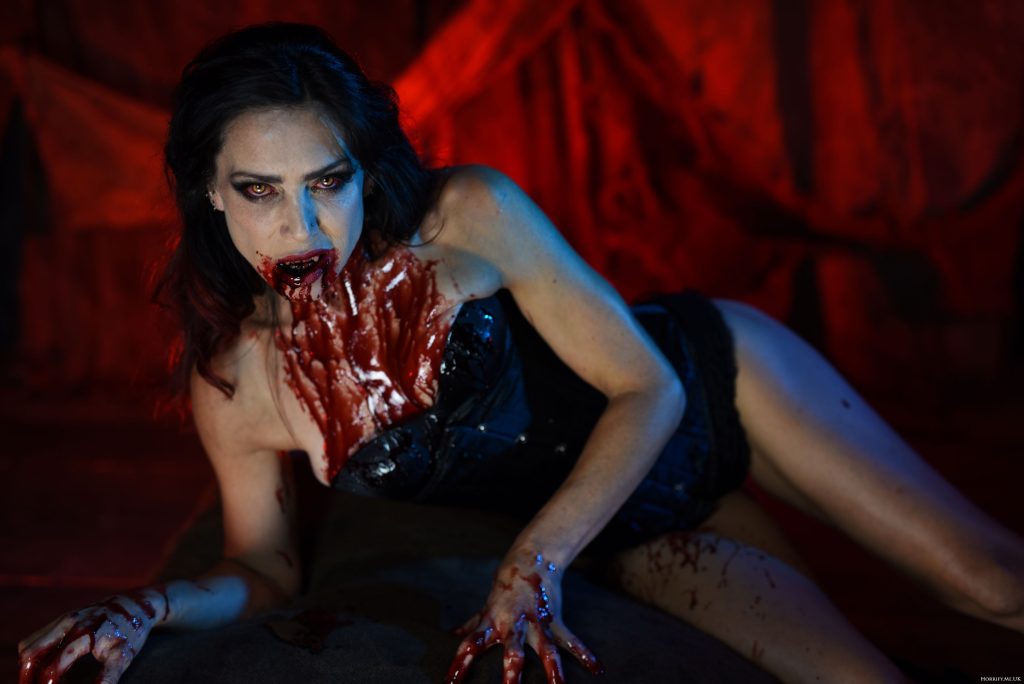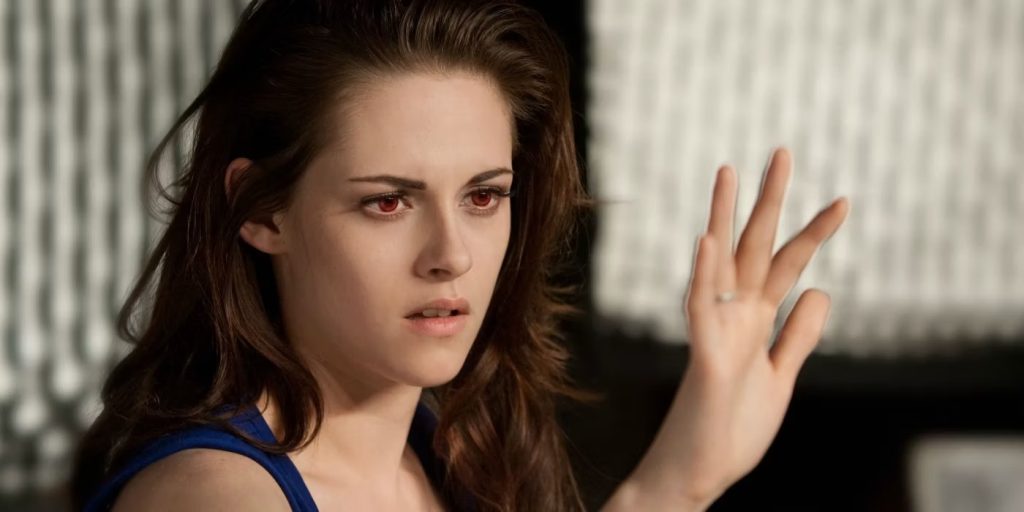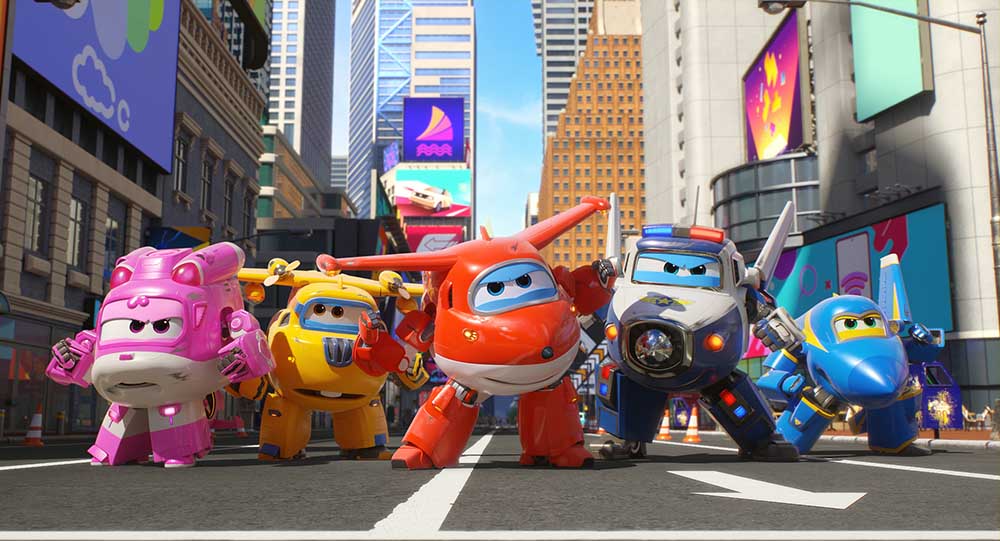“Peacemaker… What a joke.” So were Rick Flag’s last words in James Gunn’s The Suicide Squad, right before his death at the hands of Peacemaker. They were words that shook Christopher Smith to his core, and that hang over both the show and the character in its debut season. Conceived by Gunn during the worldwide lockdown of 2020, the show marks the first major foray into television from DC Films (at least in terms of shows that are directly connected to its big-screen releases), following in the footsteps of Star Wars and Marvel. But luckily for DC, what sets Peacemaker apart is that it’s actually a good deal better than many of its MCU counterparts. Across eight excellent episodes, Gunn’s show is an absolute treat.
Picking up a few months after the events of The Suicide Squad, Peacemaker (John Cena) is out of hospital and once again recruited by the US government for a top-secret mission, joined by series veterans Emilia Harcourt and John Economos (Jennifer Holland and Steve Agee), as well as newcomers Leota Adebayo, Clemson Murn, and Vigilante (Danielle Brooks, Chukwudi Iwuji, and Freddie Stroma, respectively). While the show itself is undeniably a different beast to the blockbuster movie that spawned it, it’s very easy to see the same creative talent involved, both in front of and behind the camera.
The one big advantage Peacemaker has over its competitors is that it’s free of the constraints of the 12A rating. Where Marvel has always strived to keep their movies and shows kid-friendly, DC have shown no interest in such a strategy, catering to both kids and adults alike with their range of content. Peacemaker is perhaps ultimate proof that variety is key to success: while the show’s successes aren’t solely down to its rating, it is helped by the fact that its showrunner is free of any restraints. Gunn’s edge is on full display here, both for better and worse. This will undoubtedly be too much for some, but for those of us that can vibe with it, it’s a delight: the copious amounts of swearing, sex, and bloody violence always feel earned and important (or at the very least funny), never crossing the line into gratuitousness. It’s not grown-up entertainment simply for the sake of it – it’s grown-up entertainment with the express purpose of giving us something different to the neutered comic book worlds we’ve become used to.
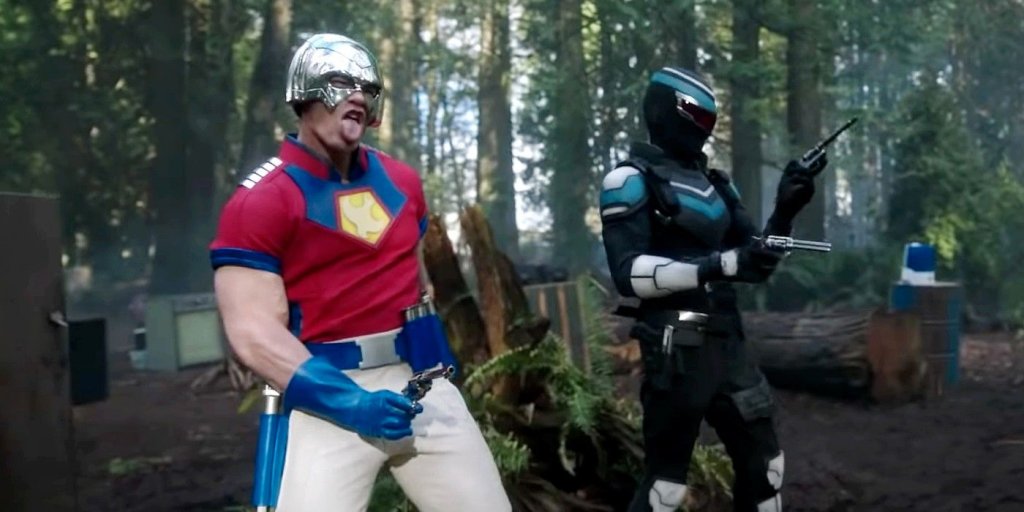
Without a doubt, the show’s biggest strength is its cast. Though Cena, Holland et al. are as great as we might have expected from them, it’s Danielle Brooks who surprises the most as Leota Adebayo. The espionage newbie is seriously put through the wringer here, which is even worse for her given that “Project Butterfly” is her first field mission. Brooks is all-in, though, selling both the biggest laughs and most heartfelt moments with ease. In many ways, Adebayo is the show’s true heart and voice of reason, and no one other than Brooks could have sold it as well.
Cena is great too, of course. One thing the show does well is to lean into his comedic timing as much as possible, resulting is some great moments of levity among the chaos. Cena and Gunn are keen to interrogate what makes Christopher Smith tick, leading to some incredibly emotional and cathartic moments towards the season’s climax. This is helped along by the introduction of Robert Patrick as Smith’s awful, piece of shit, neo-Nazi father: Patrick devours the role, and clearly has a lot of time being utterly repulsive as the worst type of person on the planet.
But for all the nastiness, all the blood and gore, all the swearing and sex, Peacemaker wants to do something different. Not only in the way it presents itself, with all the aforementioned guts and nonsense, but in the way in which it explores its protagonist. The Suicide Squad initially introduced a very two-dimensional version of Peacemaker, and then proceeded to interrogate him. What this show does is to tear him down entirely, and force him to question who he is, and what he really fights for. The man who at first seems like a glorified, jingoistic serial killer actually turns out to have much more depth than that.
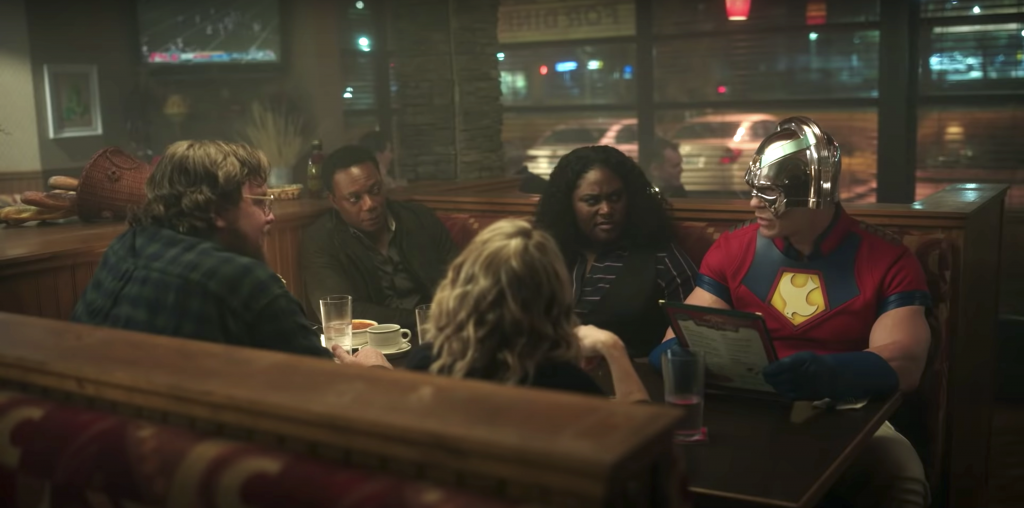
Gunn’s show is in no way a “racist people are all good deep down, actually,” but it wants to figure out why Peacemaker thinks the way he does. In the end, the show finds, it comes down to upbringing. Some people are awful because they’re brought up to think that way. Some people are just terrible through and through. Some of these people can be saved from their hatred. Some can’t. There are no easy answers in Peacemaker, but it’s certainly a refreshing change of pace for a comic book property to tackle such subject matter.
Once you take all that, and throw in some great scripts, solid action, a fascinating story, and a hell of a lot of laughs, you’ve got a recipe for a comic book show like no other. It certainly won’t be to everyone’s taste, but if you can get on board with it, you’re in for a hell of a ride. Bring on Season 2!
PEACEMAKER can be seen in the UK via Sky or NOW

